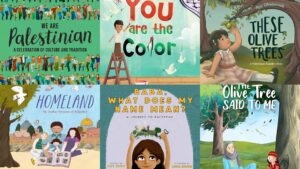We need to be more active and deliberate in choosing how we set the scene for our children’s Ramadhan and fasting memories. So how can we create a tranquil environment during holy Ramadhan that our children will remember fondly for decades and want to emulate in the future?
Harnessing the Blessings of the Month of Ramadhan as a Family

For many of us, Ramadhan is about much more than the mandatory act of fasting. It is a time of reflection, a feeling of connection and belonging and upholding heart-warming family traditions.
Fasting can be demanding, especially given that heatwaves conveniently tend to coincide with our fasting month most years! But we know Allah has ordained this for a reason, or indeed many, beyond our understanding and appreciation.
However, not all the benefits of fasting are hidden from us. Scientific evidence has long since become an avid supporter of what is termed ‘intermittent fasting’ as a way of controlling weight, reversing some types of disease as well as providing a feeling of control and well-being. Over recent decades, with the increase in technology and its usage in the home, our snacking has increased- often late into the night. This is a strain on the body from which fasting can provide a welcome relief.
Intermittent fasting can take different forms, the two most common being the daily approach, which shares many features with the Muslim fast during the month of Ramadhan. In this daily approach, food intake occurs only between certain hours e.g. 8 hour food window and 16 hour fast. The second type is a weekly approach also known as the 5:2 diet which sees only 2 days fasting in the week and five days of normal health eating. The two fasting days involve a much reduced intake, sometimes as low as 500 calories per day.
Fasting has also been studied in the context of autophagy, a process by which cells clean up harmful and degraded components and regenerate the cell. This has been linked to enhanced cell function and the prevention of cancers.
Neuroscientist Matt Mattson, having studied intermittent fasting for 25 years is a strong advocate and his research has confirmed numerous health benefits. These are not limited to the physical body but to brain function too. Intermittent fasting has been shown to result in a sharper mind as well as better working and verbal memory. Despite the lack of caffeine and calorie intake, many fasting people report the same.
The mental benefits of fating can take a few days to become apparent, headaches and moodiness giving way to a clearer thought process as the energy diverted from digestion now becomes available elsewhere.
Fasting exercises willpower, likened to a muscle that will strengthen with practise. It is a true example of delaying gratification for a higher purpose or goal. A great sense of accomplishment is thereby perceived which empowers the individual to apply this willpower and new found strength to other aspects of their lives, be it beating an addiction, facing a challenge or healing an ailing relationship.
Curiously, studies have even found fasting people reporting improved mood, a higher level of well-being and tranquillity as a result of this phenomenon. It is no wonder then, with all these holistic perks enveloping encompassing the fasting person, that he feels more confident, better able to connect with others, and more spiritually open.
What an opportunity then that the holy month of Ramadhan affords us with every occurrence to utilise these and harness the blessings and beauty of this holy month to elevate our spirits, recharge our connections within and without the family unit and build lasting memories.
We will all have special and positive memories of Ramadhans gone by. My early fasting memories are of walking into the house after school, just as the fasting day was nearing completion and Maghreb approaching fast. Ramadhan would have fallen in winter then. I would be met with a waft of inviting aromas of soups, roasts and rice dishes. My mother would usually be in the kitchen preparing the meal. There would be white noise from various kitchen gadgets in the backdrop of calming recitation of the holy Quran through a TV satellite channel broadcasting the Ka’ba live and the mesmerising sight of streams of pilgrims encircling it. It felt safe and peaceful.
Nowadays there are a plethora of channels, exclusive ‘Ramadhan’ sitcoms and a bombardment of food and charity adds. We need to be more active and deliberate in choosing how we set the scene for our children’s Ramadhan and fasting memories. So how can we create a tranquil environment during holy Ramadhan that our children will remember fondly for decades and want to emulate in the future?
- Decorate your home
This wasn’t something I grew up with but I was drawn to do as I became a parent. A decorated home speaks to a special and precious time of the year and is visually pleasing. Create memories by inspiring as many of the senses as possible through lanterns, buntings, candles and incense. Invite your children to make home-made decorations such as cutting bunting templates, paperchains, dua cards or advent calendars. Etsy.com has a nice selection made wood or fabric and I like this one with a daily pocket which can be filled with a hadith or Quranic ayah and something sweet for each evening. I have known families to create a special Ramadhan corner in their home for quiet time, reflection and prayer, beautifully decorated with books, lanterns and prayer mats. This can enhance the pleasure of reading Quran, reciting dua and praying together as a family.
2. Cooking is a really fun family activity
Pre-Ramadhan preparations can involve the kids in making spring rolls, kebabs and other side dishes or desserts. They can help you make smoothies and juices, which can provide respite from the thirst of the long and warm fasting days. Cooking is a mindful activity that helps increase connection, turn taking, manual dexterity and following instructions. It won’t be perfect with little helpers and may even take longer, but is teaching your child valuable skills and building lasting memories.
3. Create a positive ritual around Iftar and Suhur time.
If your family attends the prayers and Iftar with wider family or in a centre every Ramadhan, that’s wonderful. If this is not part of your Ramadhan routine, you can create a special feeling at home. Pray together as a family if you can but even if not, let the pleasing sound of the beautiful and eloquent Athan (call to prayer) resonate in your home at Maghreb time. There are many beautiful versions you can find onYouTube. Suhur time can also involve the sound of Dua, wonderful aromas and positive connection.
4. Focus on building community
Many charities run special campaigns during Ramadhan. Consider not only donating to these but volunteering any time or resource you may have to enhance the Ramadhan experience and amplify the reward. Encourage your children to do this where possible too. This diverts the focus from the hunger and thirst to a more meaningful venture and utilisation of their fasting hours which would otherwise be passed through distraction and less purposeful activities. Other actions include coins in a Sadaqa box every morning or evening, reciting Surat al Fatiha for the deceased, collectively praying for the needy and oppressed and reaching out to neighbours and older people in your area. This will amplify the levels of gratitude, empathy, responsibility and connectedness in the whole family.
5. Make Eid special
Schools and work places are especially sympathetic to religious festivals and will grant a day of authorised leave from school if requested in advance or even on the day. It is not always easy to know which day Eid will fall on but ensure you book your leave from work ahead of time to allow for the flexibility to have a special Eid as a family. Where leave is not granted or possible at work, greet your children in the morning, wish them a happy Eid, pray Eid prayers as a family with the instructions printed or broadcast onto a screen and have something enjoyable planned for the evening. This could be as simple as games and puzzles with the family, baking Eid biscuits or going out for dinner. Our children are surrounded by examples of fun and appealing festivals like Christmas and Diwali and yearn for similar for their own festivals. We can make an effort to create that for them too.


